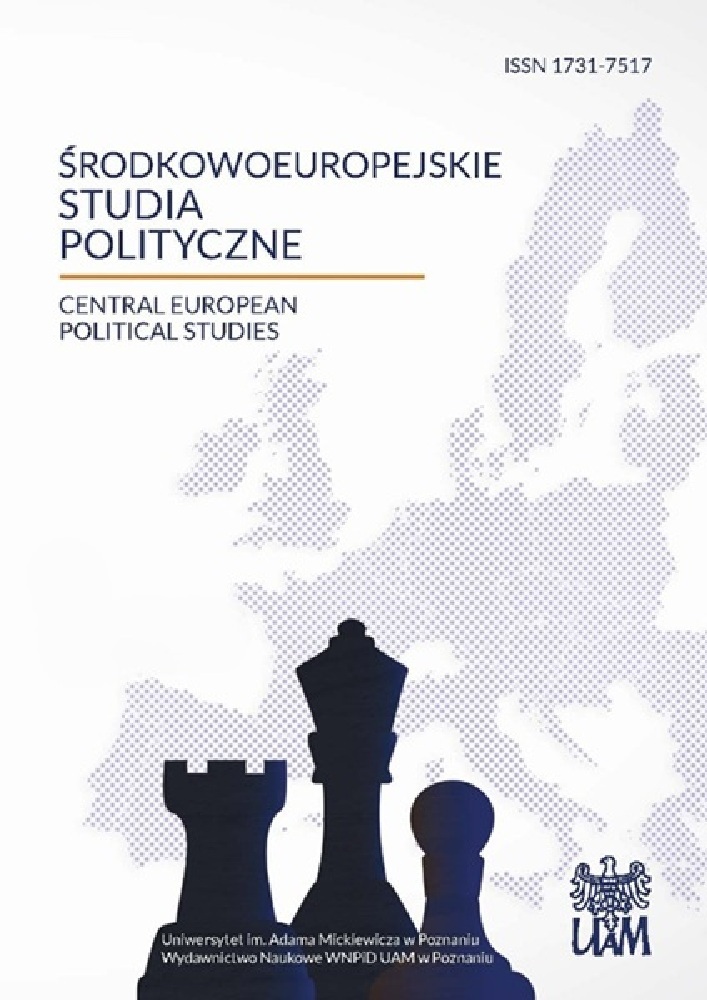Abstrakt
Political parties rooted in a non-democratic system have become a significant element of party systems in Poland, the Czech Republic and Hungary, where they have taken an active part in the transformation process. The paper assesses the significance of these types of groupings for the construction of a new democratic system by means of a comparison of four members of the Vysehrad Group. The ideological profiles of these parties and their position in the party arena are defined. Finally, an attempt is made to answer the question of how these groupings have adapted to the new democratic system, why some of them continue to play a crucial role in politics even today, while others are found somewhere on the outskirts of political life. The author’s interests focus on the successors of those groupings that held full power before 1989: the Democratic Left Alliance in Poland, the Communist Party of Bohemia and Moravia in the Czech Republic, the Party of the Democratic Left in Slovakia, and the Hungarian Socialist Party. The example of the Communist Party of Bohemia and Moravia is of particular interest here as this is the only party that has not fundamentally changed its ideological profile and continues in isolation from other Czech groupings. At the same time, for twenty years, this same party has come third in the national elections, and even second in the European elections.Bibliografia
Antoszewski A., Herbut R., JednakaW., Partie i systemy partyjne w Polsce. Pierwsza faza przejścia ku demokracji, Wydawnictwo Uniwersytetu Wrocławskiego, Wrocław 1993.
Bukalska P., Ortodoksi, „Tygodnik Powszechny” z dnia 29 stycznia 2010 r.
Czarnecki K., Co po kryzysie polskiej lewicy, 25.06.2009, http://www.lewica.pl/?id=19622.
Galanova M., Czeskie fora dyskusyjne a Komunistyczna Partia Czech i Moraw: rozczarowanie i nostalgia za komunistyczną przeszłością, http://www.cafebabel.pl/article/31834/nostalgia-za-komunistyczna-przeszloscia.html.
Grabiński T., Albo ona, albo my, „Gazeta Wyborcza” z dnia 24 stycznia 2002 r.
Kis J., Węgierska wojna domowa, „Gazeta Wyborcza” z dnia 8 marca 2008 r.
Kornai J., Stabilizacja i wzrost w procesie transformacji. Przypadek gospodarki węgierskiej, Wydawnictwo Akademii Ekonomicznej, Poznań 1998.
Krawczyk A., Czechy: Komunizm wiecznie żywy, „GazetaWyborcza” z 5 lipca 2007 r.
Pinior J., Rozpaczliwa agonia lewicy, „Dziennik” z dnia 27 marca 2009 r.
Sobolewska-Myślik K., Partie i systemy partyjne Europy Środkowej po 1989 roku, Księgarnia Akademicka, Wydawnictwo Naukowe, Kraków 1999.
Sobolewska-Myślik K., Partie i systemy partyjne na świecie, PWN, Warszawa 2006.
Sokół W., Żmigrodzki M., Systemy polityczne państw Europy Środkowej i Wschodniej, UMCS, Lublin 2005.
Sula P., System partyjny Republiki Węgierskiej, Wrocław 2005.
Systemy polityczne Europy Środkowej i Wschodniej. Perspektywa porównawcza, red. A. Antoszewski, Wydawnictwo Uniwersytetu Wrocławskiego, Wrocław 2006.
Szelegieniec P., Problemy z lewicą, 25.03.2010, http://lewica.pl/index.php?id=21264&utm_source=feedburner&utm_medium=feed&utm_campaign=Feed%3A+politykawsieci+%28Polityka+w+sieci%29.
Wesołowski W., Partie: nieustanne kłopoty, Wydawnictwo IFIS PAN, Warszawa 2000.
Licencja
Copyright
© 2011, Uniwersytet im. Adama Mickiewicza w Poznaniu, Wydawnictwo Naukowe Instytutu Nauk Politycznych i Dziennikarstwa
OPEN ACCESS
